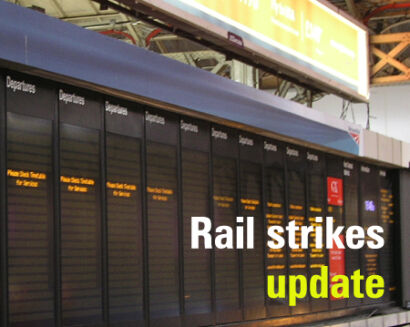The Rail Delivery Group is reported to have warned the RMT that talks at national level may not continue unless the ‘best and final’ offer is put to its members in a ballot.
One sticking point is the reforms the government wants to introduce, which could include the closure of most ticket offices. The RMT has insisted that any pay offers must be unconditional, and is preparing to stage fresh strikes on 16, 18 and 30 March, and also on 1 April. There will be a separate walkout affecting both RMT and ASLEF members at Transport for London on 15 March.
The offer is for 5 per cent for 2022-23 and 4 per cent for 2023-4, in exchange for changed working practices.
Transport secretary Mark Harper has asked the RMT to let its members consider the ‘good’ pay offer. He said he was pleased that members of the TSSA had accepted it.
He continued: ‘I would urge the RMT to put the offers that they’ve had to their members and let their members make the decision, and I think they’re good offers.
‘And I think that their members ought to accept them and I hope the RMT reconsiders their decision not even to put those offers to their members. If we get those offers delivered, we can all work together to deliver a better railway for passengers.’
Chief employers’ negotiator Tim Shoveller told Railnews: ‘We spent January working with the RMT and were confident that the package agreed would be accepted by another 4000 RMT members which would take us over the 50 per cent acceptance threshold, but this was not put to members to vote on. The fact the RMT continues to refuse to put this to the members is our biggest challenge and also for their members who want a vote and not to lose any more money.
‘We thought we were on the verge of a deal three times, but the RMT Executive Committee in June, December and January, had a pattern of not passing this on to members for a vote.’
When the new strike dates were announced, RMT general secretary Mick Lynch had said: ‘Rail employers are not being given a fresh mandate by the government to offer our members a new deal on pay, conditions and job security. Therefore, our members will now take sustained and targeted industrial action over the next few months.
‘The government can settle this dispute easily by unshackling the rail companies. However, its stubborn refusal to do so will now mean more strike action and a very disruptive overtime ban.
‘Ministers cannot continue to sit on their hands hoping this dispute will go away as our members are fully prepared to fight tooth and nail for a negotiated settlement in the months ahead.’


